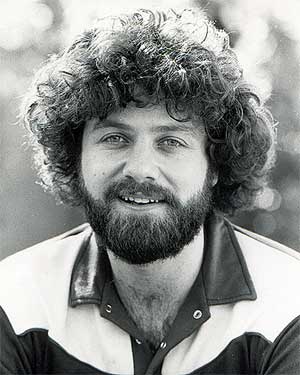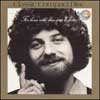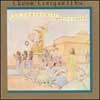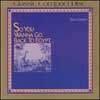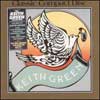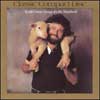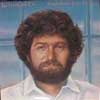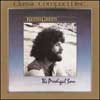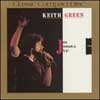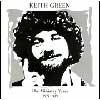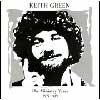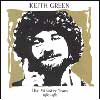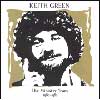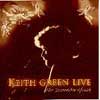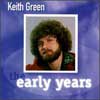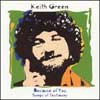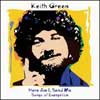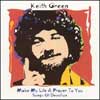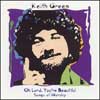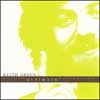Keith Green
Genre: Pop/Worship
Official Web Site
Keith Green Bibliography: (click on each album cover to view tracks and Keith Green lyrics)
Keith Green Biography When musician Keith Green died in a plane crash on July 28, 1982, the world lost a special man whose heart was aflame with the gospel message. Before his untimely end, Green took the world on his seven-year spiritual journey. He held back nothing and was consumed with loving Christ and the church.
It's about walking and talking. It's about questioning lives, softening hearts and wishing for answers. It's about stained glass, rushing winds and a billion starving people. It's about love breaking through.
The music of Keith Green continues to leave an indelible mark on the lives of believers everywhere. The man who challenged us all to a life of no compromises left behind a body of work which continues to radiate relevance to a world in dire need of light. More than a decade and a half has passed since Keith Green departed this world, yet his music and his message lives on for a new generation of listeners to hear. His example of in-your-face integrity and living a life sold out for Christ challenges those who have followed him down the path of musical ministry, including Forefront artist Rebecca St. James:
"I've known about, and heard stories about, Keith Green all my life. I think what touches me most about him was that he was so committed to loving God and living for Him. His actions showed that his heart was after God's. I love the fact that he titled an album No Compromise because that says to me that he was bold about what he felt strongly about, and that challenges me even in my own ministry."
Keith Green tasted what the world defined as success at an early age. Even before entering his teenage years, Keith had a recording contract with Decca Records and became the youngest member of ASCAP. Time magazine referred to Keith as a "pre-pubescent dreamboat" who "croons in a voice trembling with conviction." But when the predicted superstardom never emerged, Keith did what a large number of young people of the late '60s and early '70s did: test the limits of his own freedom by experimenting with drugs, free love and various Eastern religions.
All that changed in the early- to mid-'70s through a succession of events: Meeting and marrying aspiring songwriter Melody Steiner; undergoing a true conversion in 1975 while attending Pastor Kenn Gulliksen's Vineyard Christian Fellowship; taking in "street people" during the fledgling days of what would later become the Greens' Last Days Ministries; and recording and releasing For Him Who Has Ears To Hear for Sparrow in 1977. That first album, beginning a collaboration and friendship with drummer/producer Bill Maxwell, opened the floodgates of Keith's artistic talents. Through a series of recordings on Sparrow and later his own label, Pretty Good Records, Keith's simple, piano-driven songs about a life of conviction, meshed with his passionate voice, challenged everyone who listened.
And he wanted as many that could listen to listen, going so far as to ask for release from his contract with Sparrow so he could distribute his music to people for "whatever they could afford." They did, and he did, eventually distributing more than 200,000 copies of his album So You Wanna Go Back To Egypt for next to nothing in return. Rebecca St. James comments on Keith's commitment to the message he was called to deliver: "What was essential to Keith was his commitment to God. It just seemed to shine through in everything he did and said. I know he was very strong-willed and people were sometimes offended at what he did and said, but it all came out of a pure motive of trying to be faithful to God and be committed to Him in every part of his life. He wasn't going to back down just because of what people thought of him. That, to me, says that he was more focused on pleasing God than on pleasing man, something I think we should all try to focus on."
Keith Green's musical legacy was rooted in four themes: Worship, Testimony, Devotion and Evangelism. In a day and age in which young people everywhere are searching for truth they can embrace, Keith's music continues to be an uncluttered source from which one can draw strength and hope. Rebecca continues:
"I believe my generation needs to know more about Keith Green because he is an example of someone who really stood for God. My generation is desperately in need of encouragement, we need to be given hope. Keith was somebody who gave encouragement, challenge and hope. My generation not only needs to hear about him, but also from him. I think Keith's music will have a wonderful effect on them. They're looking for answers to grab a hold on with both hands and hang on. I want to show truth through my music and my life, but I think that's what Keith has already done. By re-presenting his music to people, he can speak into people's lives today, even though he's been gone all this time."
The albums in this collection touch on those four themes:
WORSHIP "Worship was such a huge element in Keith's music. The Bible talks about 'when Jesus is lifted up, all men will be drawn unto Him.' When He's lifted up in our hearts, people will naturally be drawn to Him. That's what Keith did. He worshipped God and encouraged that atmosphere in everything he did. You can't underestimate the power of God, the Bible and music being put together. Keith understood that."
TESTIMONY "Keith had a bit of fame at an early age, and then it was all taken away. I think he realized the futility of it all, how useless it was and when he became a Christian, he said 'This is the way I've been looking for all my life.' I think he has a powerful testimony in that he can say, 'I've been there, done that, and there's not much good about it.' His life showed that God's love is real, and that it's a waste of time to try any other way."
DEVOTION "When you see someone worship God wholeheartedly, you see their devotion and their love for God. Keith worked hard to be faithful in all those aspects of his life: faithful husband, faithful father and above all else, faithful to God. Whether he was on stage or not, he was trying to surrender every moment to God. He had a heart that sought after God's, and that's something I want in my life, too."
EVANGELISM "Again, Keith had such a heart for speaking to people, speaking the truth and reaching out to them with God's love. I love the story about the time where Keith was at a festival, and he felt people were not getting in touch with God's message. He got really discouraged and thought people were using it more as entertainment. He crawled under the piano and started praying and wouldn't come out, and it was at that point where people started to be broken and a real spirit of repentance came over the crowd. Things like that showed that Keith had a real care for people to know the truth and come to understand about the truth. He felt very deeply about how people were responding to the truth being spoken."
At times confrontational and powerful, at others gentle and soothing, Keith Green's music covers the gamut of human emotions and reactions that comprise a life in Christ. And although his work was hailed as that of a modern-day prophet, he shunned that title much the way he admonished others to look toward heaven for answers:
"Even though people seemed to want to call him a prophet and ascribe this or that to him and his work, he really underplayed that. I'm reminded of the line he wrote that said, 'And when I'm doing well, help me to never seek a crown. Jesus, my reward is giving glory to you.' People tried to put him on a pedestal, but that's not what his life was all about."
Just as Keith Green served the needs of others during his lifetime, his music stands to fulfill us to this day. Whether we're strengthened by worship, renewed by testimony, comforted in devotion or challenged in evangelism, Keith Green's musical legacy continues to serve as a soundtrack to the Christian walk.
|


